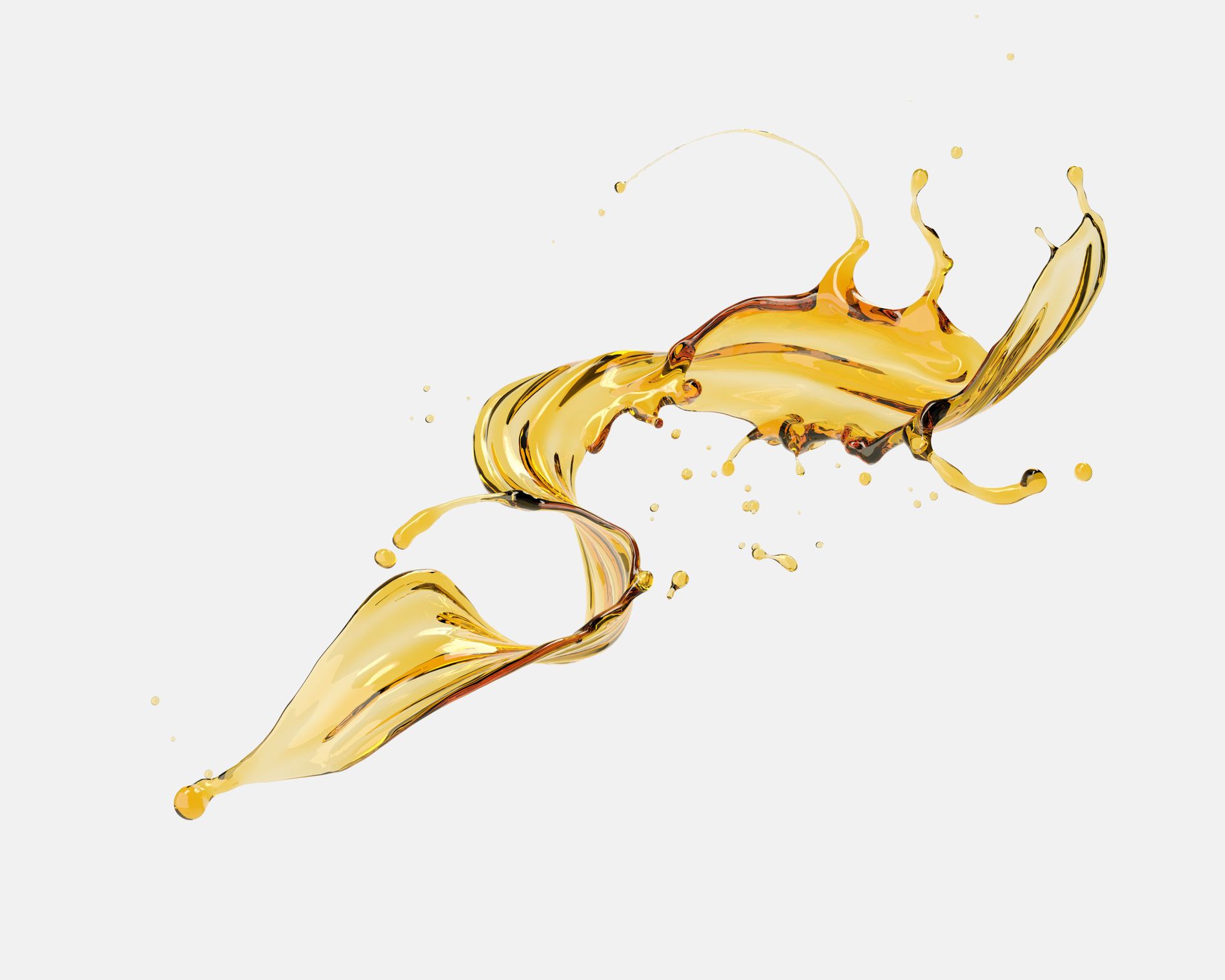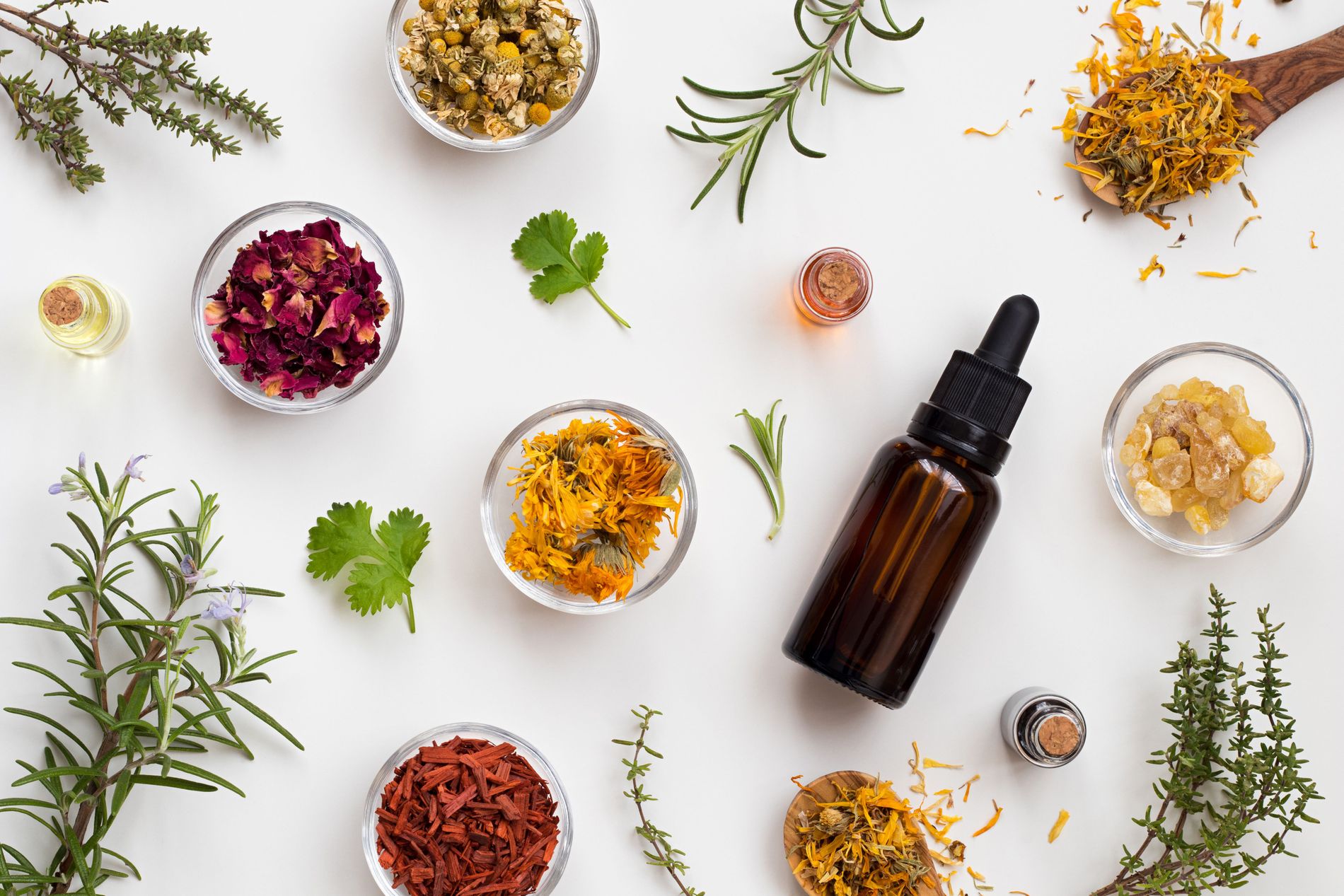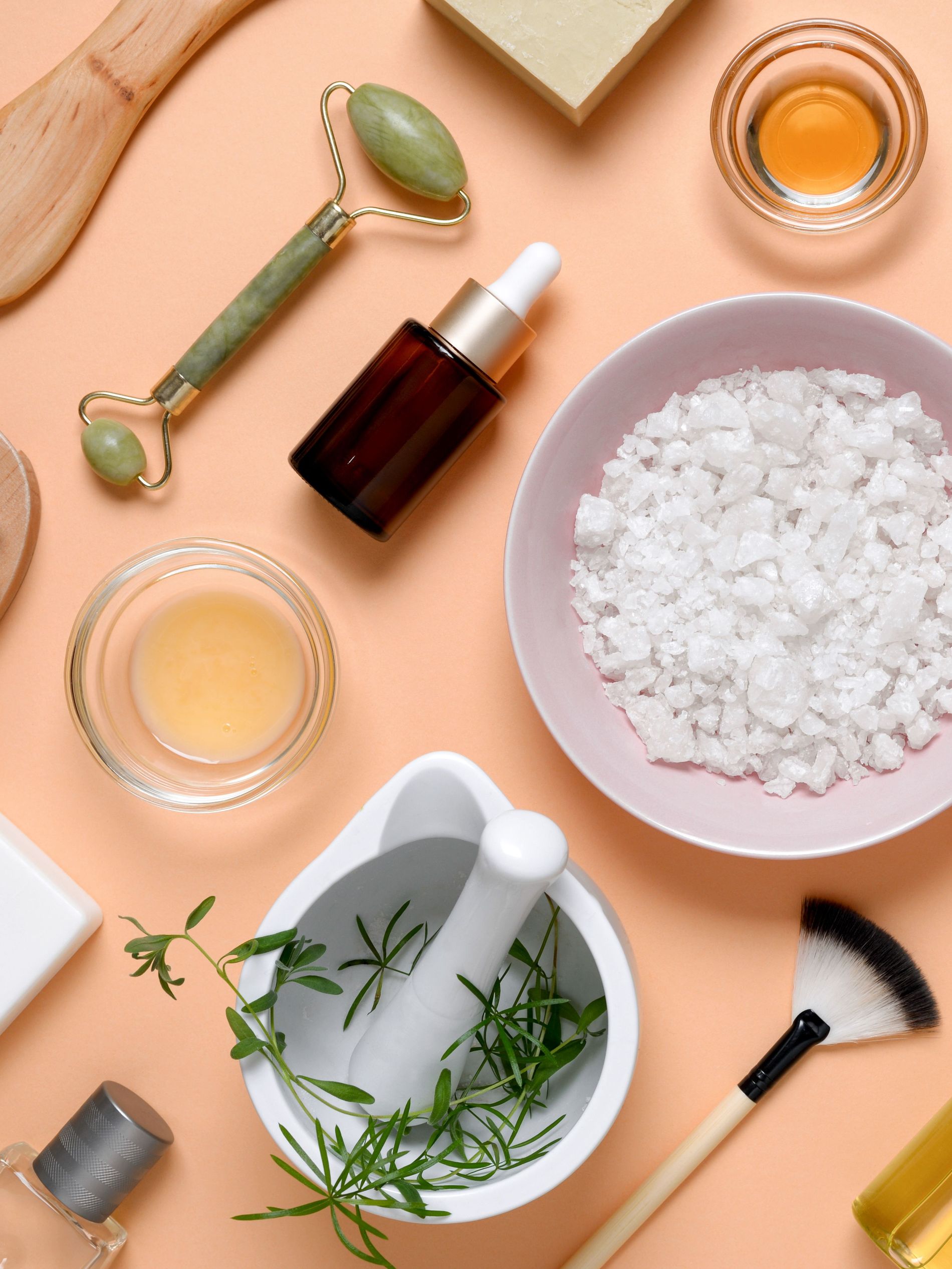Natural ingredients are renowned for feeding the skin with goodness, but some can be surprisingly irritating for sensitive skin
Natural ingredients are powerful skin allies. Brimming with nourishing vitamins, minerals and omegas it’s no wonder we consider them safer than their chemical counterparts, which are often laced with sulfates and artificial fragrances – dirty beauty words that make you want to purge your bathroom shelf. But despite what you may believe, even natural ingredients can act as triggers for allergic reactions in sensitive skin.
Those with reactive skin know to avoid products laden with harsh fragrances, alcohol and chemicals. While many natural beauty brands eliminate these potential irritants from their formulas, they often contain essential oils. These plant-based oils smell incredible. They can have anti-inflammatory properties and kill acne-causing bacteria as well as help to heal and regenerate the skin. But they are also incredibly concentrated and contain chemical compounds, which can stir up trouble in sensitive skin.

Oil — one of the most common forms of natural ingredients used in skincare.
“Natural does not mean allergy free,” warns Lars Fredriksson, founder of Verso Skincare. “Many people, for example, are allergic to pollen. A natural compound may also be made up of many ingredients, which can differ depending on where they were harvested and in what season. Everything is a chemical, whether it’s man-made or natural. There are good and bad natural ingredients, just as there are good and bad synthetic ingredients.”
According to a report published in the Wall Street Journal, researchers at the North American Contact Dermatitis Group, which tracks dermatologic allergic reactions in patients, have compiled a list of about 80 plant-based oils that can cause allergic reactions. These include seemingly harmless tea tree, jasmine, peppermint, lavender and ylang-ylang oils that are often found in face oils, body lotions and soaps.

Tea tree — a popular anti-inflammatory and antimicrobial ingredient. Its use in high concentrations can cause irritation.
Diluted with water, tea tree oil can reduce the throbbing and swelling from a spot that’s sprung up unannounced. But when it sits at the top of an ingredients list, it can pack too mighty a punch, leaving skin dry, itchy and irritated. “People also over apply natural acne products, which means there is a cumulative effect,” says Kristofer Vänttinen, R&D manager at Lumene, which doesn’t use tea tree oil in any of its products. “By overloading the skin, actives like tea tree oil may create adverse skin reactions.”
As for what to avoid? If you’ve ever felt the burn on your upper lip from a minty toothpaste, you’ll already be familiar with the potential for peppermint oil to spark serious skin reactions. “Peppermint oil is often used for its cooling effects as it naturally contains menthol,” says Vänttinen. “But it can also be a trigger for an itchy skin rash, typically known as allergic contact dermatitis. This is a delayed hypersensitivity reaction with symptoms typically occurring 12 to 72 hours after exposure.”
Similarly, citrus oils smell incredible in a candle but can be problematic on sensitive skin. “Pure citrus can be irritating and make skin photosensitive,” adds Fredriksson. In extreme cases, when exposed to sunlight, lemon and grapefruit oils can become phototoxic and cause mild chemical burns.

None of which is to say you need to swear off all essential oils. It just means being smart about how to use them, and recognising they are actives with potential adverse side effects. If you want to swerve irritation, make sure more gnarly oils are not one of the first ingredients (and, thus, the highest concentration) in your skincare. “And always do a patch test by placing some product behind the ear or on your forearm to see if you have any adverse reactions,” advises Fredriksson.
Finally, zero in on oils that serve up a liberal helping of goodness no matter your skin type. Vänttinen recommends Nordic oat oil, which plays a starring role in Lumene’s Moisture & Relief Rich Oleo-serum. “Oats naturally contain skin-soothing compounds known as avenanthramides. They are also a rich source of omega-6 fatty acids and vitamin E, which, together with plant ceramides, strengthen the skin barrier against external aggressors.” Or for a covers-all-bases option, choose jojoba oil. Because of the way it mimics the natural sebum in skin, L:A Bruket Jojoba Oil cushions against dryness but also helps to regulate oil production in acne-prone skin for the win.
